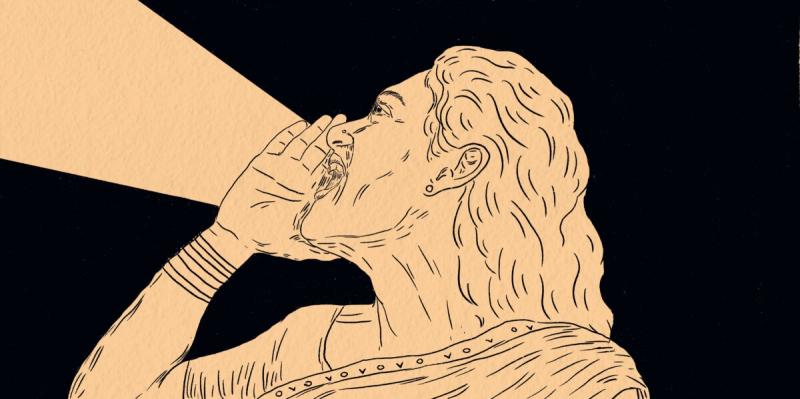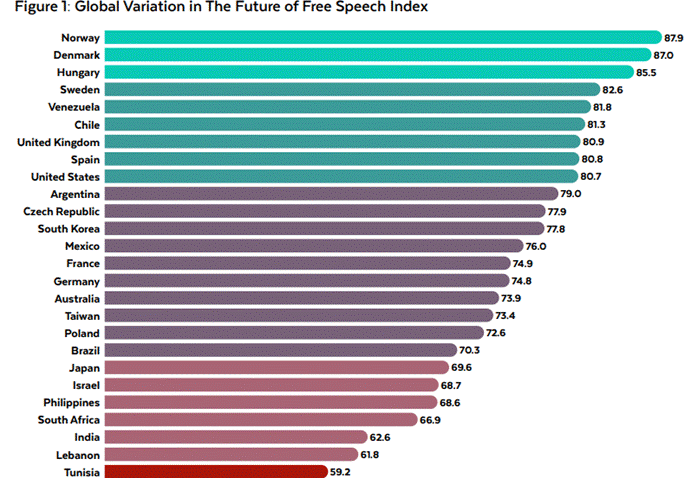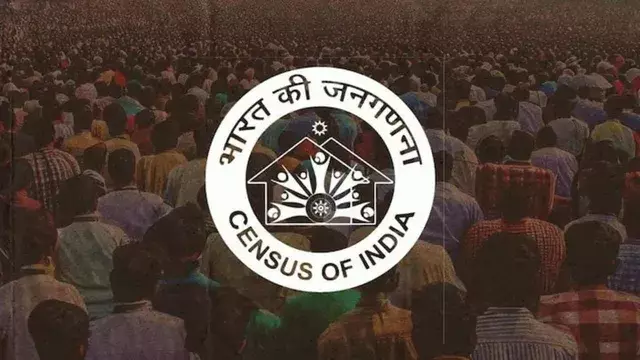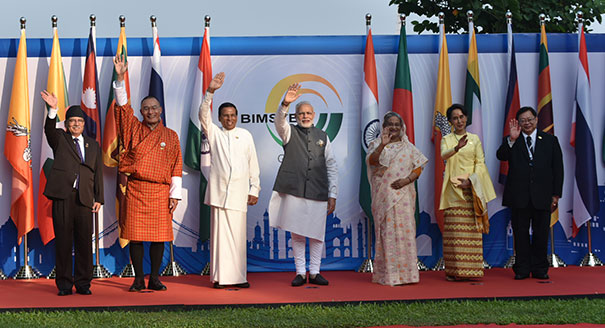- Courses
- GS Full Course 1 Year
- GS Full Course 2 Year
- GS Full Course 3 Year
- GS Full Course Till Selection
- Answer Alpha: Mains 2025 Mentorship
- MEP (Mains Enrichment Programme) Data, Facts
- Essay Target – 150+ Marks
- Online Program
- GS Recorded Course
- Polity
- Geography
- Economy
- Ancient, Medieval and Art & Culture AMAC
- Modern India, Post Independence & World History
- Environment
- Governance
- Science & Technology
- International Relations and Internal Security
- Disaster Management
- Ethics
- NCERT Current Affairs
- Indian Society and Social Issue
- NCERT- Science and Technology
- NCERT - Geography
- NCERT - Ancient History
- NCERT- World History
- NCERT Modern History
- CSAT
- 5 LAYERED ARJUNA Mentorship
- Public Administration Optional
- ABOUT US
- OUR TOPPERS
- TEST SERIES
- FREE STUDY MATERIAL
- VIDEOS
- CONTACT US
India Ranked 24th in Global Free Speech Index 2025
India Ranked 24th in Global Free Speech Index 2025
19-03-2025

- Conducted by: The Future of Free Speech, an independent U.S.-based think tank.
- Survey Title: "Who in the World Supports Free Speech?"
- Survey Date: October 2024.
- Focus: The survey ranked 33 countries based on public support for free speech, exploring the extent of endorsement for freedom of expression and protection for controversial speech.

India's Rank and Position:
- Rank: India was ranked 24th out of 33 countries with a score of 62.6 on the free speech index.
- Position Relative to Other Countries: India ranks between South Africa (66.9) and Lebanon (61.8), showing moderate support for free speech.
Countries with High and Low Support
- Top Supporters: Scandinavian countries—Norway (87.9), Denmark (87.0), and Sweden (82.6)—lead the rankings for free speech support.
- Hungary (85.5) and Venezuela (81.8), despite democratic challenges, also show high support for free speech.
- Countries with Lowest Support: Free speech support is lowest in many Muslim-majority countries and the Global South, including Indonesia (56.8), Malaysia (55.4), Pakistan (57.0), Kenya (54.3), and India (62.6).
- Top Countries in the Western World: United Kingdom (80.9), Spain (80.8), United States (80.7).
Countries with Declines in Free Speech Support (2021-2024)
- Biggest Drops:
- Japan saw a 10.6-point drop, Israel experienced a decline amid the Israeli-Palestinian conflict, and United States showed a drop due to political polarization.
- Countries with Increases:
- Pakistan (up 5.5), Malaysia (up 4.4), and Indonesia (up 3.8) showed improvements, though they still rank among the lowest in free speech support.
Changing Trends in Tolerance Since 2021
- Rising Tolerance for Government Criticism: Some countries, such as Sweden, Poland, France, Japan, and Israel, have shown a rise in tolerance for limiting criticism of religion.
- Approval of Homosexual Relationships: India, South Africa, Lebanon, Mexico, and the U.S. have seen increases in approval for homosexual relationships.
- Decreased Trade-off for Security: In countries like Malaysia, Tunisia, Pakistan, Kenya, and Taiwan, there has been a decreased willingness to trade off free speech for national security or economic concerns.
Demographic Differences in Free Speech Support
- Gender Differences: Women generally show lower support for offensive speech related to minorities, religion, or national symbols but tend to show higher tolerance for statements supporting homosexual relationships.
- Age Differences: Older generations tend to be more tolerant of government criticism but less tolerant of insults to national symbols, while younger generations show more flexibility on issues of religion and sexuality.
U.S. Trends
- Decline in Free Speech Support: Men and younger to middle-aged people in the U.S. showed declining support for free speech, particularly regarding sensitive issues such as homosexual relationships or insults to the American flag.
Findings Specific to India
- Majority Support for Free Speech : A majority of Indians agreed that it is very important to have the right to speak freely without government censorship, reflecting general support for free speech.
- Support for Criticism of Government Policies : 37% of Indian respondents supported the idea that governments should be able to prevent people from criticizing government policies—the highest percentage among all surveyed countries.
- This compares to just 5% in the UK and 3% in Denmark, underscoring a key difference in India’s support for government criticism.
- Disconnect Between Public Support and Legal Protection
- While public support for free speech is relatively strong in India, legal protections for free speech have been eroding, leading to a disconnect between what citizens want and how the government practices free speech protections.
- India is highlighted as a case of democratic backsliding, where political liberties, including freedom of expression, are declining.
- Public Perception of Free Speech in India
- Improvement or Worsening?:
- Although Indians believe their ability to speak freely about political matters has improved.
- But global observers suggest that India’s free speech protections have worsened in recent years, with government scrutiny of speech increasing and dissent becoming less tolerated.
Cultural and Societal Insights on Free Speech
- Free Speech Beyond Legal Rights: Executive Director of The Future of Free Speech, emphasized that free speech goes beyond legal rights and depends on a culture of open debate and tolerance for dissent within a society.
- He also warned that even though many countries claim to support free speech, there is a declining willingness to defend controversial or unpopular speech, making legal protections ineffective without a public commitment to freedom of expression.



